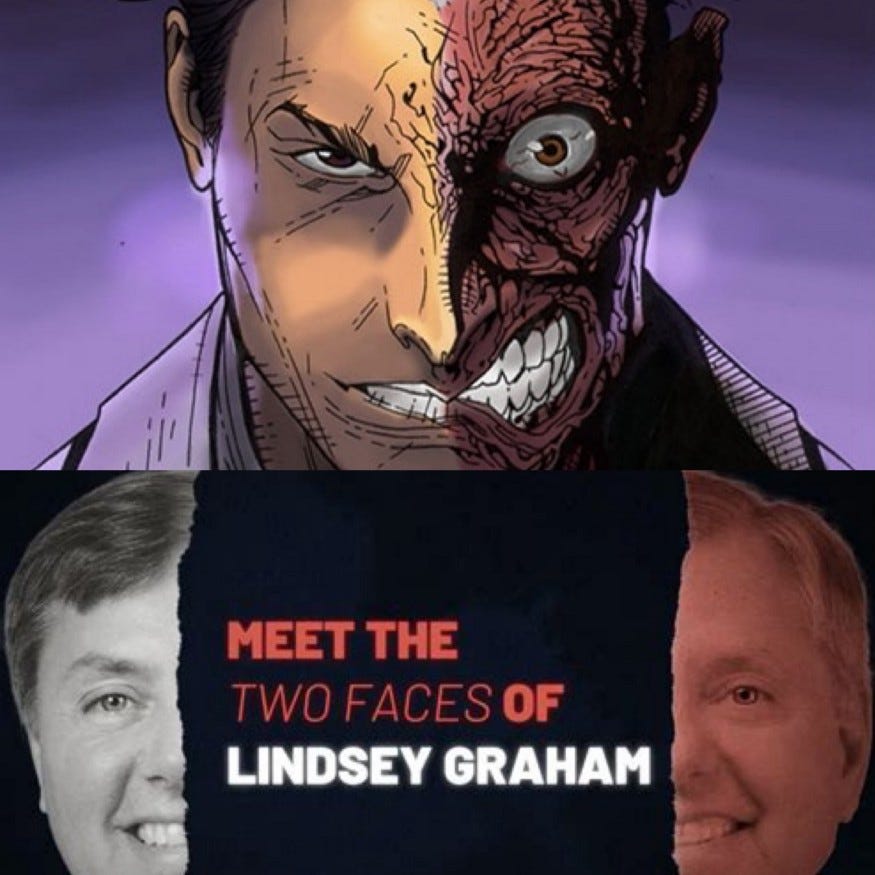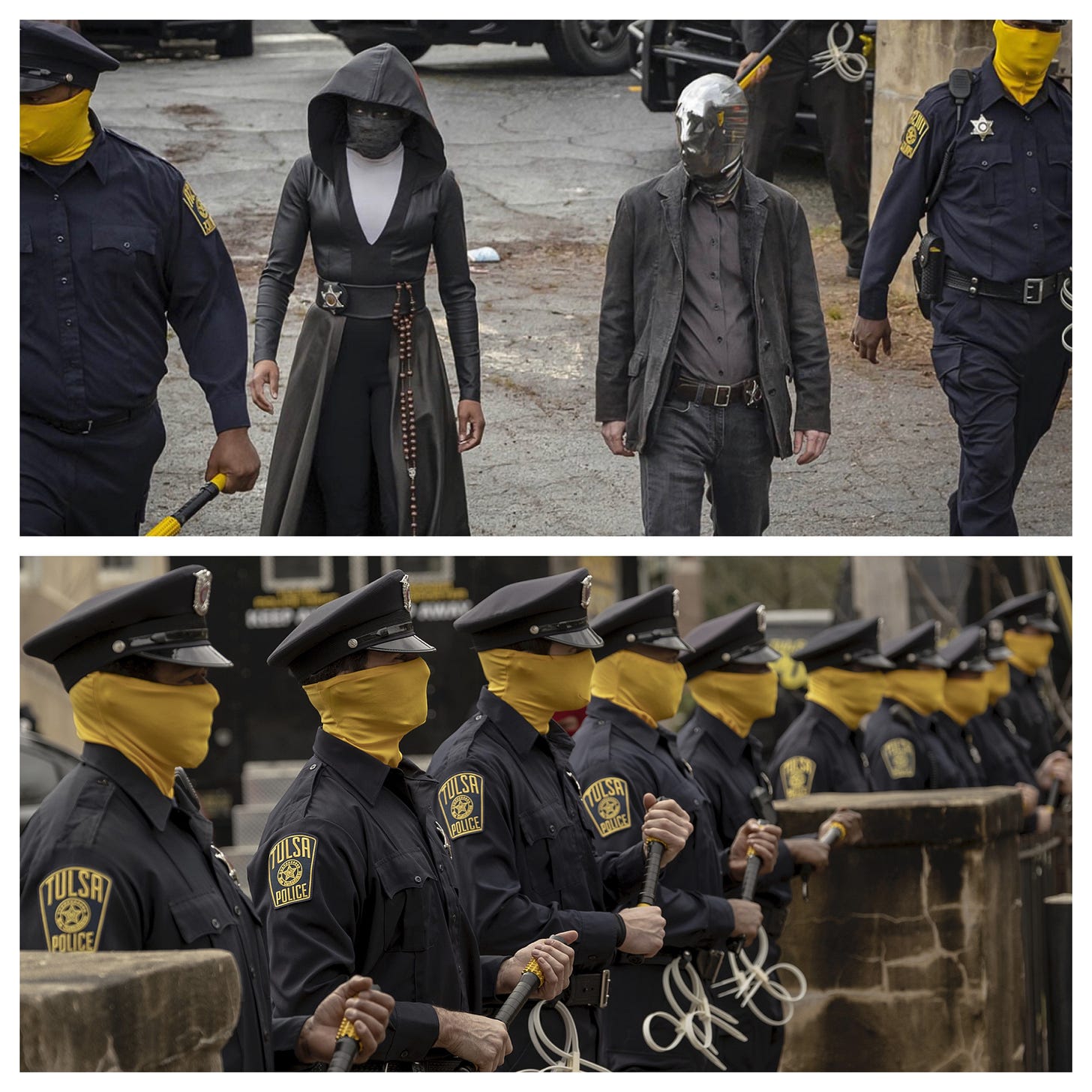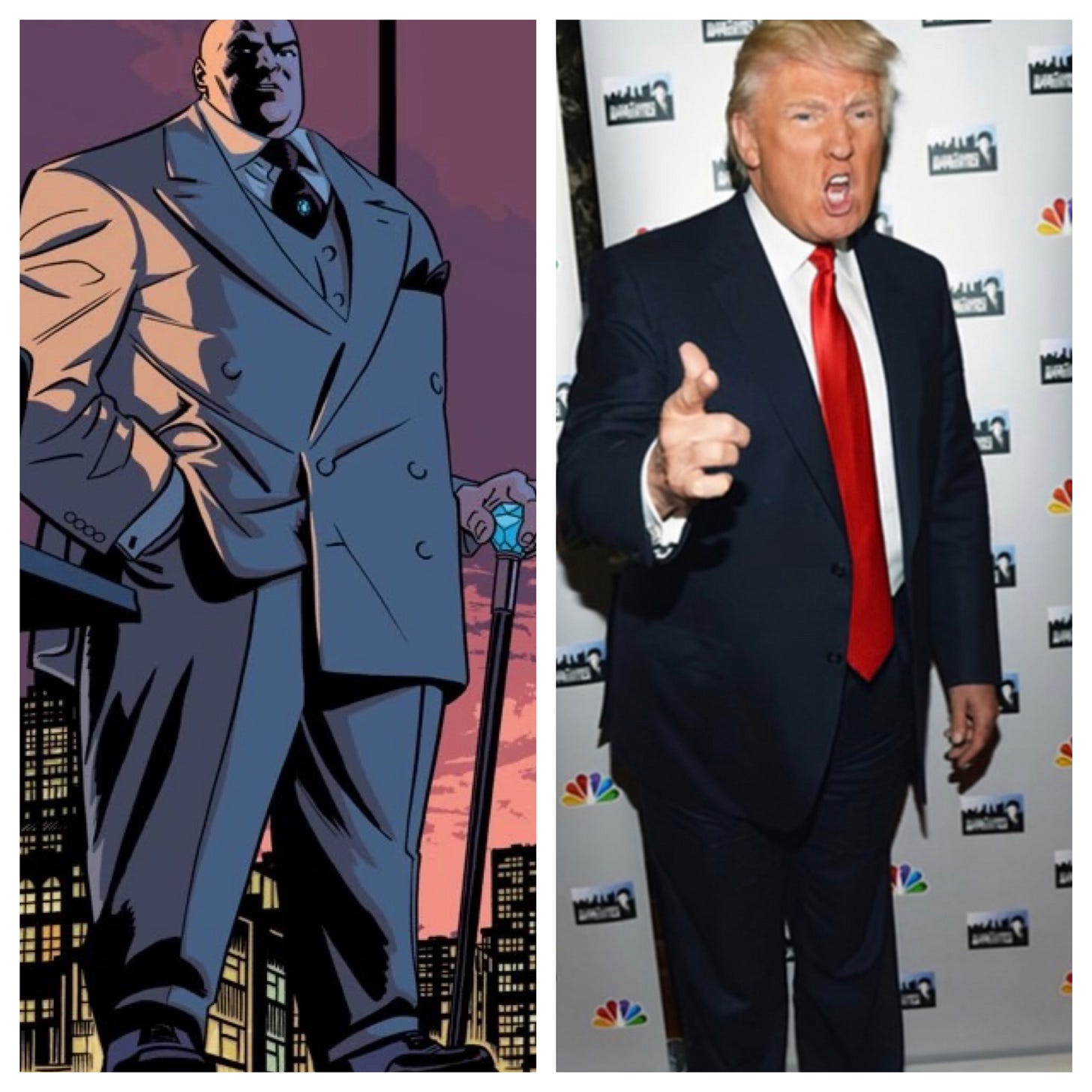Not Even Stan Lee Expected Things To Get This F*cked Up
Nobody in the comic book business ever thought reality could outdo their fictional universes

Long before superheroes transitioned to the big screen, I was a huge comic book nerd. As a child, my comic book habit was so out of control, when my mom sent me to the grocery store, I’d steal her change to feed my habit. Back then, the latest Spider-Man was only fifteen cents, so I was able to rein in my thievery by the time I reached adulthood.
Believe it or not, the supplier of my comic book habit was Fulton Feed & Seed, a mom-and-pop hardware store that, for reasons I’ve never understood, sold comic books in addition to hammers, nails, and the baby chicks under heat lamps displayed in the store window.
By my senior year in high school, I had a huge comic book collection. I stored them all in a black trunk positioned at the foot of my bed. While I was away working for my cousin one summer, my entire collection met its demise.
In her infinite wisdom, my mom tossed my entire treasure chest of comics in the trash. I’m not saying I’m still carrying a grudge, but whenever I see a comic book I once owned sell for thousands of dollars, the image of that black trunk pops into my head.
My fascination with superheroes and supervillains is why M. Knight Shamalan’s 2000 film Unbreakable, which starred Bruce Willis and Samuel L. Jackson, is one of my favorites. The film, ranked in 2011 as one of the top ten superhero films of its era, theorized that the archetypes found in comic book mythology are exaggerations of real-life heroes and villains.
Unbreakable’s genius notwithstanding, my guess is that when Marvel’s Stan Lee or the folks at DC Comics created their multiverse of superheroes and supervillains, they never expected reality to be so close to the mark—if not worse. Here are a few examples of comic book universes colliding with our dystopian reality:
The Two-Faced Politician
District Attorney Harvey Dent was once a rising star in Gotham City until a mob boss scarred the left side of his face with acidic chemicals. He subsequently loses his mind, adopting the “Two-Face” persona. Two-Face obsessively makes decisions by flipping a two-headed coin. Later iterations of this supervillain portray the supervillain as a personal friend and ally to Batman, and even as the best friend of Batman’s alter ego, Bruce Wayne.
While the Dark Knight would never have him as his BFF, Republican Senator Lindsey Graham is the real-life doppelgänger for Harvey Dent. For years seen as friends-slash-political moderates, Graham and the late Arizona Senator John McCain were practically inseparable.
Graham was also an ally of President Joseph Biden during his tenure representing Delaware in the US Senate, telling a reporter in 2015, “If you can’t admire Joe Biden as a person, then you got a problem. You need to do some self-evaluation. ’Cause what’s not to like?”
Senator Graham’s star continued to rise, landing him among the GOP’s candidates for president. But something happened after the 2016 election.
Suddenly, the South Carolina Senator changed from a relatively decent politician to a sell-out political hack. Like the Two-Face character in the comic books, Graham’s entire personality changed, but it wasn’t because of a mob boss, just a politician who behaved like one.
Graham’s personality shift was so similar to the Two-Face comic book character that Jaime Harrison, his opponent in the 2020 election, alluded to it in a campaign ad. Did Harrison intend to compare Graham to Two-Face? Perhaps someone should ask him.
The Mask of White Supremacy
I was never a big fan of the Watchmen comic books, but when HBO dropped its 2019 “remix” of the original series, I was on board. Truth is, I’ll watch just about anything with Regina King in it. But I was hooked on Watchmen when the first episode began with a scene depicting the Black Wall Street Massacre in Tulsa, Oklahoma.
Still, I worried the plot was a bit far-fetched. I mean, would anyone believe a storyline where violent white supremacists attempt to overthrow the government, and all the heroes have to wear masks over their faces? Give me a break, nobody would buy that.
That time Batman highjacked every cellphone in Gotham City
In the 2008 film The Dark Knight, part two in Christopher Nolan’s Batman Trilogy, The Joker terrorizes Gotham City. To track The Joker down, Batman asks Lucius Fox, who manages Wayne Enterprises, to monitor the cellphones of Gotham City’s 30 million citizens — without their knowledge or consent.
Batman and Fox decide that while mass surveillance is a slippery slope, maybe it’s okay this one time. After all, someone’s gotta stop The Joker, right? They agree that once they track down The Joker, they’ll delete the mountain of private cellphone information gathered using the surveillance. It’s almost as though the entire cellphone industry watched the surveillance scene from The Dark Knight in their corporate strategy meetings.
Because just over a decade later, the New York Times reported that “dozens of companies — largely unregulated, little scrutinized” are tracking the movements — not of 30 million — but tens of millions of mobile phone owners. But unlike Batman and Lucius Fox, they hang on to the massive trove of information they collect.
The Mob Boss turned politician
Wilson Fisk, also known as the Kingpin, built his criminal empire by recruiting Chinese, Japanese, and Russian gangsters, to become one of the most prominent organized crime figures in the United States.
Despite the many depictions of the Kingpin with an extraordinarily heavyset appearance, his fans view him as a heavily muscled specimen and not the least bit obese. After using his vast ill-gotten resources to help Manhattanites survive a crisis, Fisk parlayed his newfound popularity to become mayor of New York City.
There’s a real-life kingpin wannabe with a real estate empire inherited from his family. He built his reputation by defrauding banks and not paying his debts. Despite his obvious obesity, his political supporters post fan art on social media depicting him as muscular and viral.
In 2016, Russian oligarchs helped him wrangle his way into the White House. I could go on, but that is one story we all want to forget.






oof, I forgot about that watchmen series plot.